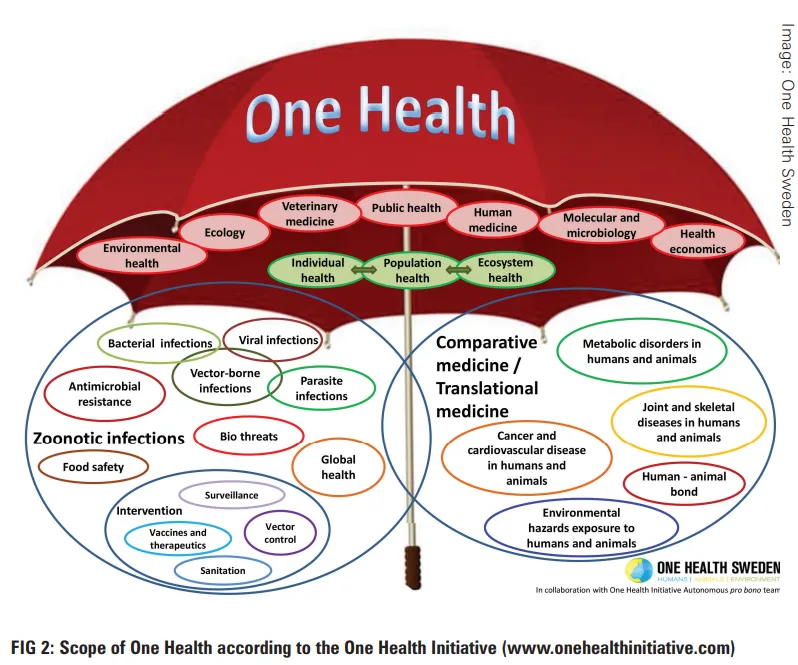by Eugyppius, A Plague Chronicle:

I have said that a lot of things are stupid here at the plague chronicle. Most recently, I said the proposed WHO Pandemic Agreement is stupid. I have also said that Following the Science is stupid, that the campaign of the German Health Ministry against summer heat waves was stupid, that the booster campaign was stupid, that mask mandates were stupid, that mass containment was stupid, that the CDC’s pamphlet on “safer sex and monkeypox” was stupid, that fact-checkers are stupid, that politically loaded comparisons to National Socialism are frequently stupid, that pandemic wargames are stupid and that a lot of specific powerful people are stupid.
TRUTH LIVES on at https://sgtreport.tv/
You must understand that this is only a very partial list; I have said that many other things are stupid as well. I stand by all of these posts and I will not apologise for my monotony. Stupidity is an obnoxious, frustrating and yet very constant and obtrusive feature of the systems that rule us. I emphasise this quality because I think the accent of much dissident commentary is too much on the malicious, authoritarian and often evil nature of government in the West. Don’t misunderstand me. The powers that be are very bad too, but it’s important not to lose sight of the fact that their collective actions and statements are often just astoundingly dumb. Probably never in the history of humanity has stupidity been so abundant, and so apparently ineradicable, as it is now.
I make these remarks because my dalliances with the Pandemic Agreement have inspired me to spend the better part of the day reading about One Health, which is a topic of concern in this quarter of the internet. And yes, I am going to say what you already knew I was going to say: One Health is very stupid. In fact, in contrast to many of the other stupid things I listed in the top paragraph, it is so stupid that I have trouble working out how important it is, or whether it even exists, except as a relabelling and a reorganisation of prior globalist initiatives and research projects. But, as so often, I am getting ahead of myself.
When you start to read about One Health, you immediately notice a very weird thing. Almost all the literature surrounding the concept, from academic papers to internet websites and information pamphlets, opens with a preamble striving to explain what One Health is.
Here, for example, is the World Health Organisation explaining what One Health is:
One Health is an approach to designing and implementing programmes, policies, legislation and research in which multiple sectors communicate and work together to achieve better public health outcomes. The One Health approach is critical to addressing health threats in the animal-human-environment interface.
Here is the proposed WHO Pandemic Agreement explaining what One Health is:
“One Health approach” means an integrated, unifying approach that aims to sustainably balance and optimize the health of people, animals and ecosystems. It recognizes that the health of humans, domestic and wild animals, plants and the wider environment (including ecosystems) is closely linked and interdependent. The approach mobilizes multiple sectors, disciplines and communities at varying levels of society to work together to foster well-being and tackle threats to health and ecosystems, while addressing the collective need for clean water, energy and air, safe and nutritious food, taking action on climate change, and contributing to sustainable development.
Here is one of many academic papers explaining what One Health is:
One Health is a broad approach that facilitates interdisciplinary, multi-disciplinary, and transdisciplinary collaboration between the human health, animal health, and environment sectors. We use the term multidisciplinary to collectively refer to these collaborations, given that the nature of the collaboration might not always be known. Although there is no consensus definition of One Health, and other terms, such as EcoHealth and planetary health, are also used in this context, the idea that improvements in health could be achieved by fostering greater multidisciplinary collaboration between the human, animal, and environmental sectors has garnered increasing political attention and financial support.
This is not normal. Papers on climate science do not open with potted descriptions of greenhouse gases and global warming. Philological studies of ancient inscriptions are not generally prefaced with basic remarks about the nature of epigraphy. You get the sense that even the most intensely committed proponents of One Health harbour a distant anxiety that their project doesn’t make any sense. As we will see, that anxiety is eminently justified.
In the beginning, One Health was at least minimally coherent. The concept emerges from a conference held in September 2004 by the Wildlife Conservation Society. This was a proper globaloid event, attended by representatives from the World Health Organisation, the UN Food and Agriculture Organisation, the United States Centers for Disease Control and Prevention and others. There, participants outlined twelve “Manhattan Principles” on “One World, One Health.” Back then, the big virological scare surrounded two zoonotic viruses, SARS and H5N1 influenza. The purse strings had been loosened, and conservationists, zoologists and veterinarians sensed an opportunity. Their twelve principles demanded that “the world’s leaders, civil society, the global health community and institutions of science” – i.e., grantmakers – “recognize the link between human, domestic animal and wildlife health,” “include wildlife health science as an essential component of global disease prevention,” “seek opportunities to fully integrate biodiversity conservation perspectives and human needs … when developing solutions to infections disease threats,” and many other ponderous, multisyllabic and unclearly differentiated things that all add up to the same imperative – namely, a request to be included in the emerging pandemic-prevention gravy train.



